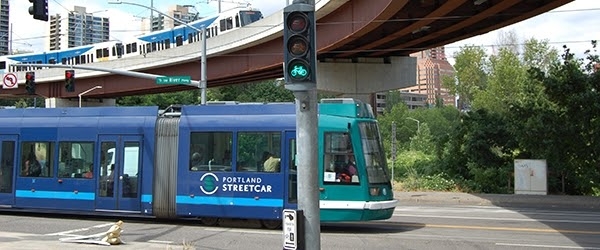Portland State University Awarded Funding for Five New Transportation Research Projects

Portland State University researchers have received funding for five new transportation research projects via the National Institute for Transportation & Communities (NITC), a research consortium funded by the U.S. Department of Transportation and led by Portland State. The projects listed below have been awarded to PSU faculty along with some inter-university collaborators, and will investigate a range of topics from leveraging advanced technology to create smart transportation systems to improving universal access and equity:
Travel time reliability is a key metric of interest to practitioners and researchers. This project will evaluate and develop methods to determine confidence intervals and hypothesis tests for select travel time reliability parameters. The researchers will also study the applicability of existing travel time reliability metrics for class one vehicles (bicycles and motorbikes) and the feasibility of defining an overall travel time reliability of an arterial segment that considers all modes.
This is the first major research collaboration between TREC and PSU’s Homelessness Research & Action Collaborative (HRAC). Research demonstrates that marginalized populations experience significant barriers in accessing transit. More recent studies look at how transgender and gender-nonconforming community members experience discrimination and harassment while riding transit, and how that impacts their choices to access transit. Led by HRAC Director Marisa Zapata, researchers will build on findings from these studies, and seek to understand how people from selected historically marginalized communities experience discrimination and harassment on transit and in public areas such as sidewalks, bus stops, and transit platforms when accessing transit. Amy Lubitow had previously authored a paper through research funded by a PSU faculty award, "Transforming mobility justice: Gendered harassment and violence on transit," that was published in the Journal of Transport Geography.
According to the City of Portland’s Hazard Mitigation Action Plan, the City faces a high risk of earthquake hazards and medium risks of landslides, wildfires, and floods. Therefore, it is important to evaluate the vulnerabilities of Portland’s transportation systems to multi-hazards and identify the weakest links in order to strengthen and prepare Portland's transportation system for future disasters. Previous research and current practice heavily focus on the vulnerability of the transportation infrastructure alone and largely ignore the socioeconomic vulnerability of the communities dependent on the infrastructure. This project will integrate socioeconomic vulnerability indicators into the vulnerability assessment of transportation systems. Researchers will design and test social vulnerability indicators for the purpose of ranking the importance of transportation infrastructure in serving vulnerable populations and businesses. Co-investigator John MacArthur has done previous work in disaster preparedness, and this work builds on those efforts by making sure equity is centered in disaster recovery.
The acquisition of food and household necessities has been dramatically impacted by the COVID-19 pandemic as people are asked to minimize travel to avoid exposure, supply chains are disrupted, transit services are reduced, and stores and restaurants have closed or modified operations. Aided by technology, online retailers and delivery services are filling some gaps left by the disruption. However, the ability to access goods and services varies substantially across different subgroups of the population. This project aims to capitalize on this unique opportunity to understand activity and travel behavioral change during this dynamic period of crisis and recovery, examine the ways new technologies may be used in household provisioning, and identify the most common barriers faced by vulnerable subgroups, such as the elderly, low-income, or disabled populations. Principal Investigator Kelly Clifton is also researching Consumer Responses to Household Provisioning During COVID-19 Crisis and Recovery under a RAPID grant from the National Science Foundation (NSF).
As a member of this three-university research team, Sirisha Kothuri of PSU will assist in investigating pedestrian behavior at signalized intersections using the state-of-the-art LIDAR sensing technologies and using these data, along with vehicular data, to develop a more effective multimodal signal control system. The project team plans to collect pedestrian behavior data at signalized intersections in Texas, Oregon and Utah. Then, the tracked pedestrian trajectories will be synchronized with high-resolution traffic signal event data to examine pedestrian crossing patterns.
The Transportation Research and Education Center (TREC) at Portland State University is home to the National Institute for Transportation and Communities (NITC), the Initiative for Bicycle and Pedestrian Innovation (IBPI), and other transportation programs. TREC produces research and tools for transportation decision makers, develops K-12 curriculum to expand the diversity and capacity of the workforce, and engages students and professionals through education.
